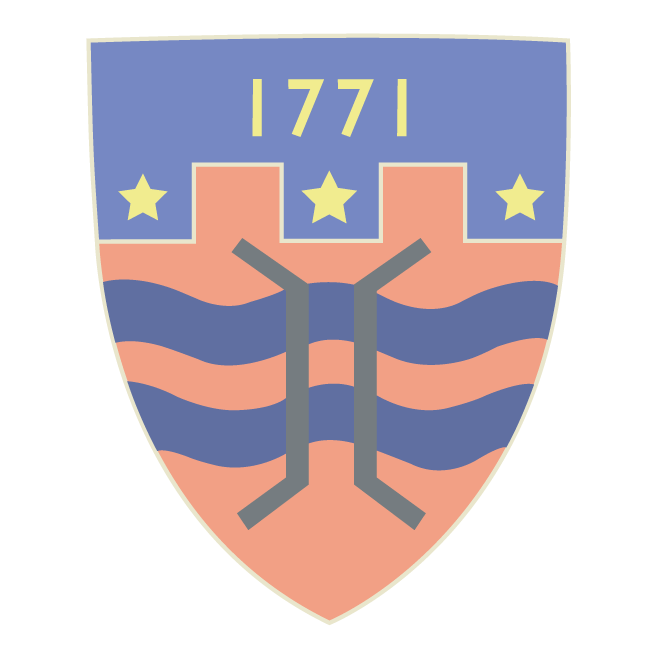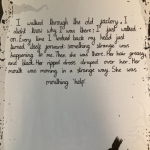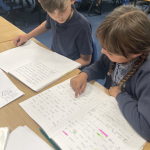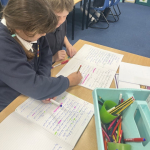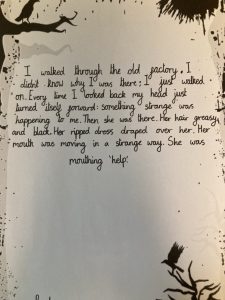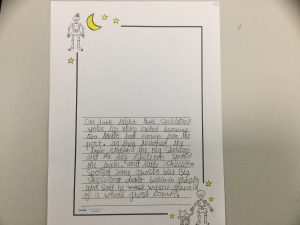Further Implementation of Writing
Children progress from participating in ‘Drawing Club’ in EYFS to being given time to plan and draft their writing in KS1 and KS2, as well as opportunities to publish their work. Across the school, writing lessons are carefully planned and sequenced to incorporate some elements of Talk for writing and a hook lesson inspired by the York Writing Project which involves immersing children in their work. There are also regular SPaG sessions and lessons which focus on particular features of a certain genre of writing depending on its purpose.
We love to celebrate the success of all learners and ensure that each child is well-prepared for a successful future by following our Christian values to promote life skills that support their learning. We plan opportunities that stimulate imagination, make connections in each child’s learning by teaching through themes and topics that include a range of trips and visits which enrich and complement children’s learning. These opportunities provide rich first-hand experiences that bring learning to life and engage the children. Children at St Oswald’s are given plenty of opportunities to showcase and develop their oracy and performance skills. These are included in sequences of English lessons through drama and public speaking. Children also practise these skills by learning and reciting poems in our yearly ‘Poetry Slams’ as well as performing and speaking publicly in our phase collective worships in church and school performances e.g. nativity. In Upper Key Stage 2, there is also a debate club which encourages children to use their spoken language skills and articulate their thoughts and ideas eloquently. In KS2, we run a book club where children are invited to come along and enjoy and share stories that they are currently reading and all classes take part in weekly timetabled visits to our local library.
Our ‘Writing Journey’ board celebrates the successes of various children and shows progression in each phase throughout the year. Each phase has different reward systems in place to encourage reading at home at an age-appropriate level.
Feedback and Support
We encourage ‘on-the-spot’ marking to ensure suitable challenge is given to support those learning at greater depth whilst targeted support is given to those who require it to embed skills or develop at their own pace. We use ‘tickled pink’ to celebrate each child’s success in their work and ‘green for growth’ to provide opportunities for children to correct and consolidate their work. Regular book audits are carried out by SLT to ensure progression and that all teachers are following our marking policy rigorously to provide the correct support and challenge for each child.
Handwriting
In EYFS, ‘Dough Disco’, fine motor skill activities and handwriting sessions are held daily. Across EYFS and KS1, Little Wandle handwriting rhymes are used to support letter formation. In phonics sessions, handwriting is modelled and in Year 2 cursive writing is used to develop children’s handwriting. In KS2, taking pride in handwriting continues to be encouraged to ensure written pieces of work are produced to each child’s best standard.
Support and Inclusion
In EYFS and KS1, all children are assessed each half term through Little Wandle. We run intervention groups based on assessments to help support children with their phonics alongside reading. We also provide groups focused on fine motor skills for those children who need support with this. In KS1 and KS2, we have daily readers who have sessions with the aim of developing a positive relationship with reading; building children’s confidence and enabling them to discuss books on a 1:1 basis. Our KS2 Little Wandle catch up groups are assessed and reviewed every half term to ensure children are working at the appropriate level.
Teachers plan and teach sequential English lessons which are differentiated to the particular needs of each child. We help each child maximise their potential by providing help and support where necessary whilst striving to make children independent workers once we have helped to equip them with the confidence, tools and strategies that they need.
